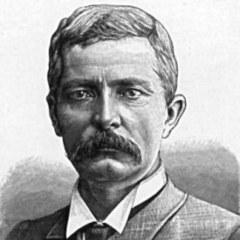Henry Mayhew Quotes

Henry Mayhew (1851). “London Labour and the London Poor: A Cyclopaedia of the Condition and Earnings of Those that Will Work, Those that Cannot Work, and Those that Will Not Work”, p.158
Henry Mayhew (1851). “London Labour and the London Poor: A Cyclopaedia of the Condition and Earnings of Those that Will Work, Those that Cannot Work, and Those that Will Not Work”, p.158
Henry Mayhew (2012). “The London Underworld in the Victorian Period: Authentic First-Person Accounts by Beggars, Thieves and Prostitutes”, p.76, Courier Corporation
The costermongers' boys will, I am informed, cheat their employers, but they do not steal from them.
Henry Mayhew (1851). “London Labor and the London Poor: A Cyclopaedia of the Condition and Earnings of Those that Will Work, Those that Cannot Work, and Those that Will Not Work”, p.26
Henry Mayhew (1851). “London Labour and the London Poor: A Cyclopaedia of the Condition and Earnings of Those that Will Work, Those that Cannot Work, and Those that Will Not Work”, p.157
Henry Mayhew (2016). “The Morning Chronicle Survey of Labour and the Poor: The Metropolitan Districts”, p.42, Routledge
Henry Mayhew (2012). “The London Underworld in the Victorian Period: Authentic First-Person Accounts by Beggars, Thieves and Prostitutes”, p.57, Courier Corporation
Henry Mayhew (1851). “London Labour and the London Poor: A Cyclopaedia of the Condition and Earnings of Those that Will Work, Those that Cannot Work, and Those that Will Not Work”, p.157
George Cruikshank, Henry George Hine, Rigdum Funnidos (gent.), Horace Mayhew, Henry Mayhew (1912). “Comic Almanack and Diary”
Ballet-girls have a bad reputation, which is in most cases well deserved
Henry Mayhew (2012). “The London Underworld in the Victorian Period: Authentic First-Person Accounts by Beggars, Thieves and Prostitutes”, p.80, Courier Corporation
We may either proceed from principles to facts, or recede from facts to principles
Henry Mayhew (1851). “London Labour and the London Poor: A Cyclopaedia of the Condition and Earnings of Those that Will Work, Those that Cannot Work, and Those that Will Not Work”, p.158






